In Nanxiong, north Guangdong's Shaoguan, a 1.5-kilometer-long ancient pathway named Zhuji Ancient Alley carries the origins and memories of the millennium-old Cantonese culture. It is not only the birthplace of Cantonese culture but also the spiritual homeland shared by millions of Cantonese people worldwide.
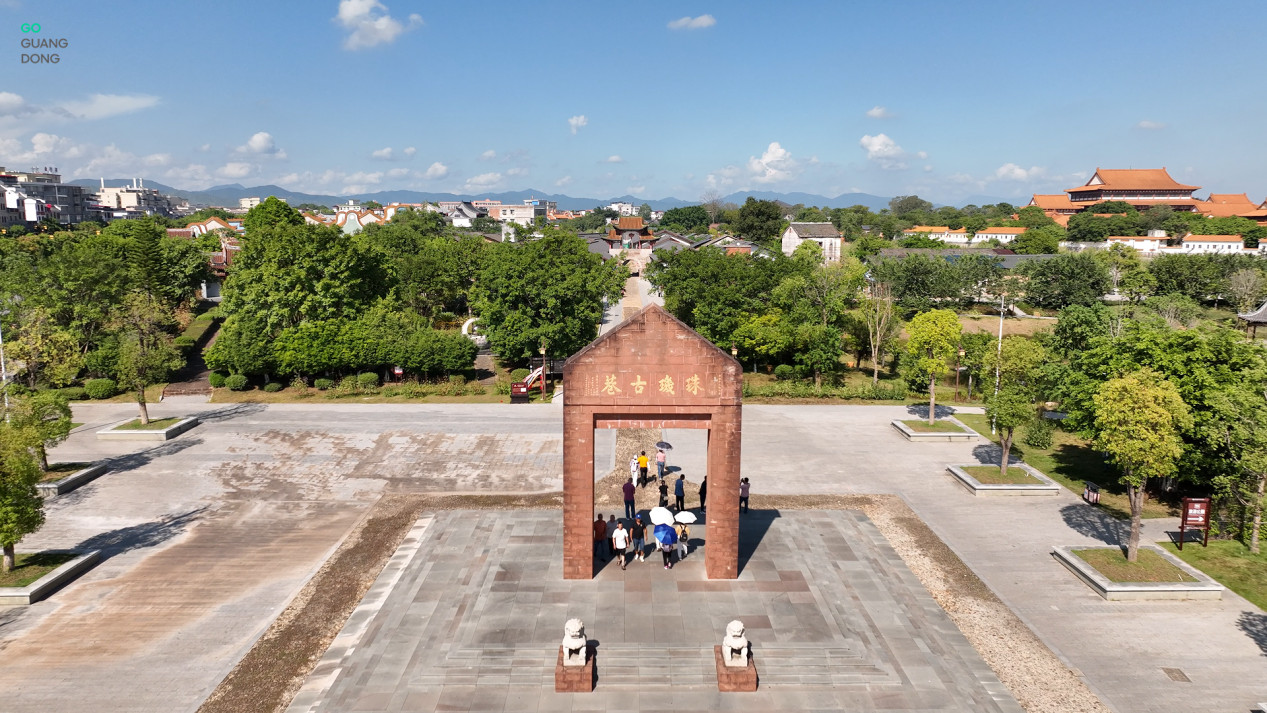
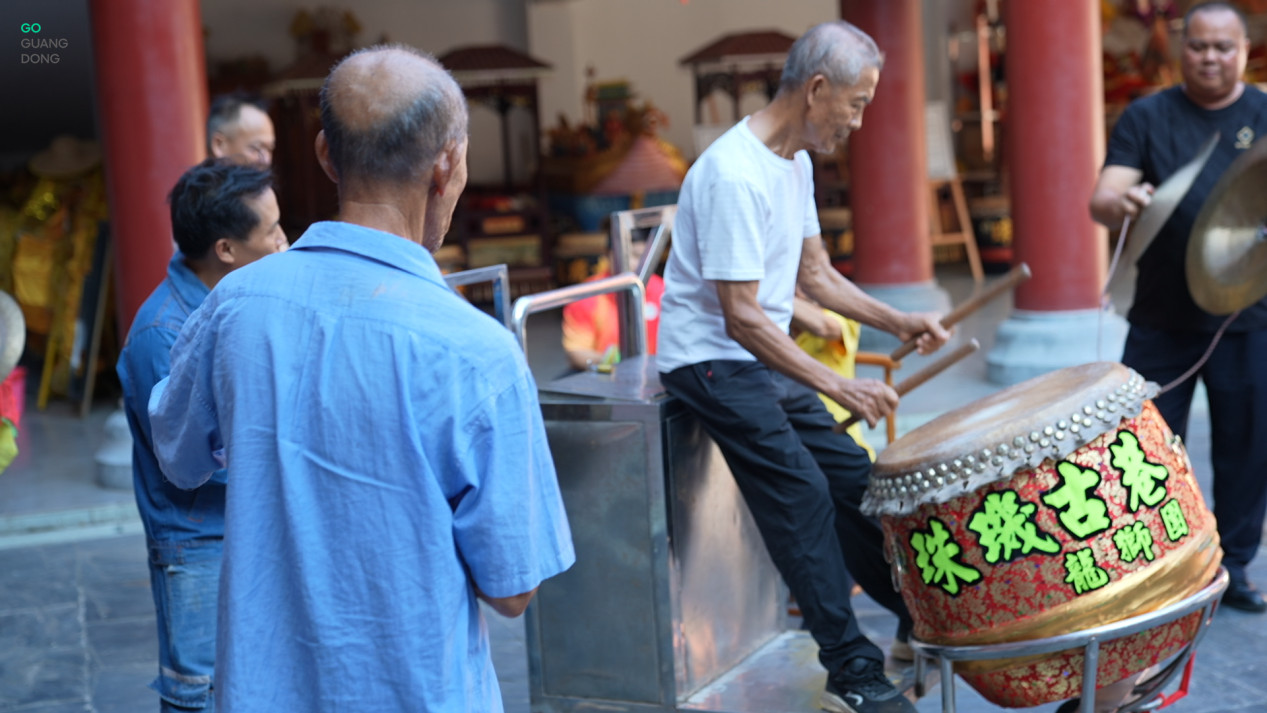
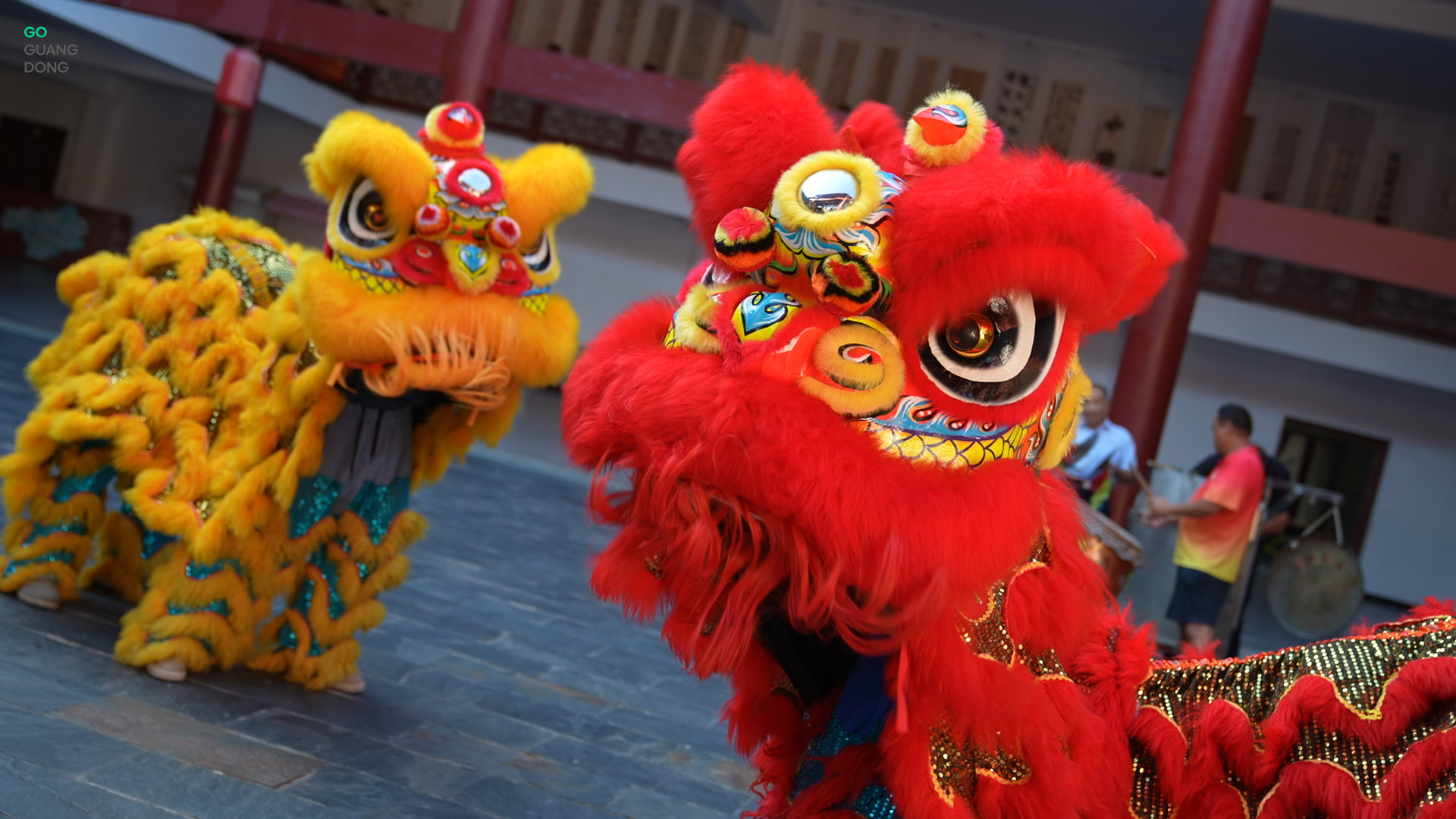 Zhuji Ancient Alley
Zhuji Ancient Alley
The Fifth Global Conference of the Cantonese is set to take place here from November 24th to 26th. The event is expected to gather overseas Chinese, representatives from Hong Kong, Macao, and Taiwan, as well as Cantonese people from all walks of life to trace their roots and reminisce about their hometowns.
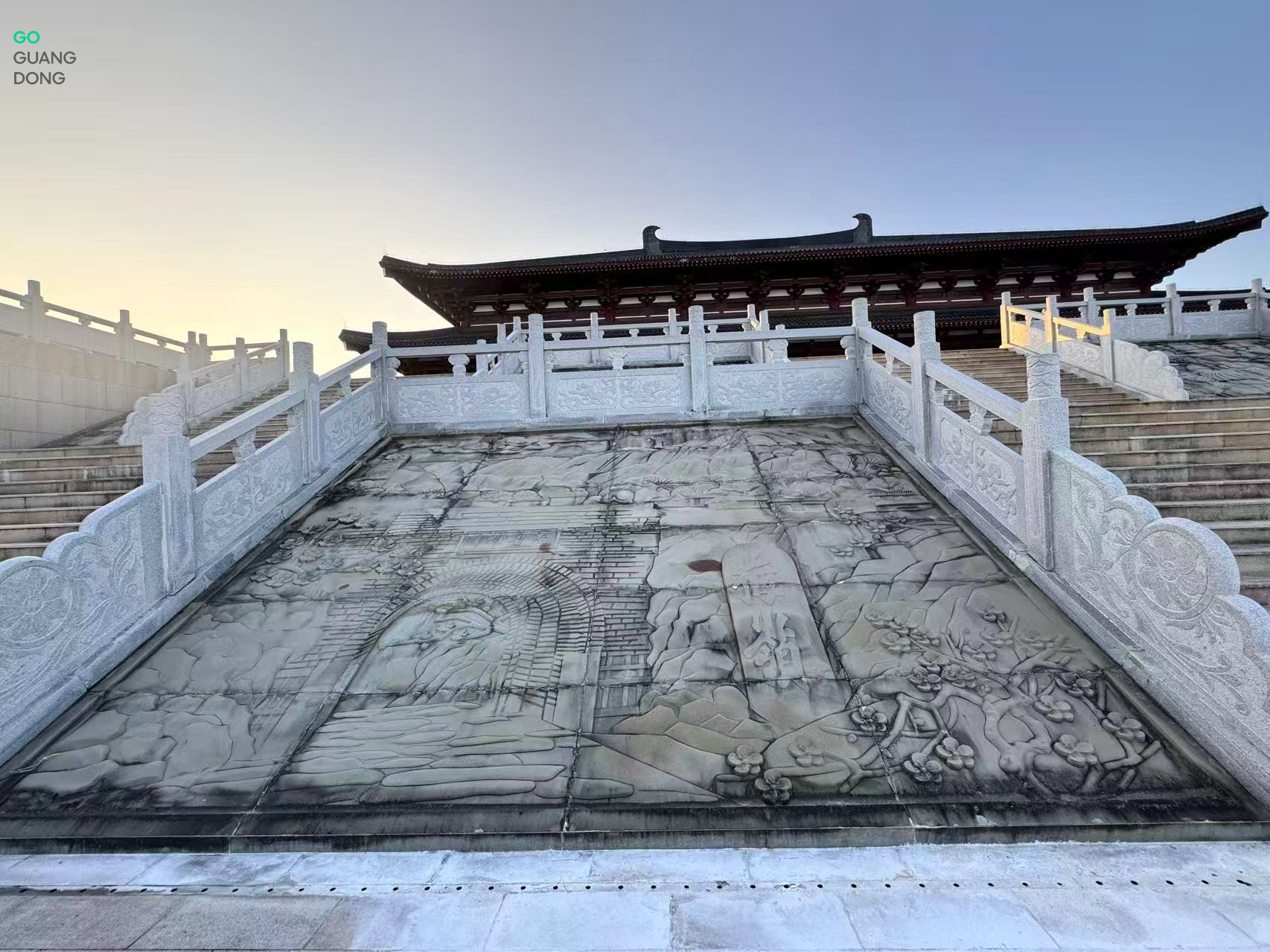
The Fifth Global Conference of the Cantonese held at Baixingtang Square
Roots of Cantonese culture traced back to Zhuji Ancient Alley
"Born in Zhuji Ancient Alley, I grew up listening to my father, Huang Jiaqing, recount tales of the past," said Huang Liyan. Following her father's footsteps, she also became the inheritor of the Legend of the Southward Migration of the Zhuji Alley People as she grew up.
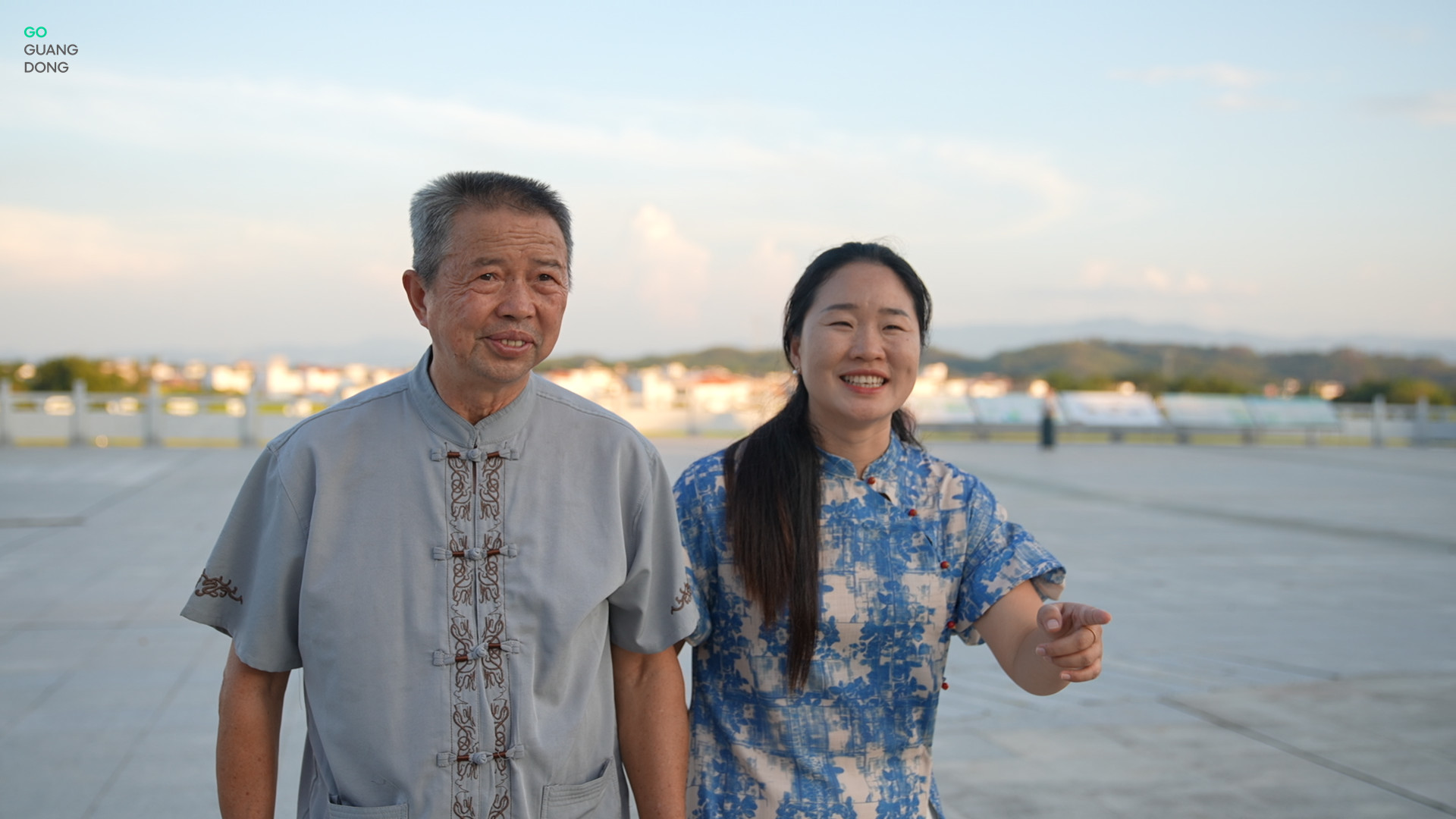
Huang Liyan and her father Huang Jiaqing
"Since Zhang Jiuling, an official of the Tang dynasty (AD 673-740), was commissioned to open the Meiguan Ancient Road, Zhuji Ancient Alley has gradually become a bustling commercial town. It was not only a must-pass route for travelers journeying from north to south but also the gateway for Lingnan to connect with the Central Plains," Huang Liyan explained.
It is this cultural melting pot that has shaped Cantonese culture. Huang Liyan elaborated, "Zhuji Ancient Alley does not refer to a single street but encompasses its surrounding areas. Residents here, regardless of their origins, have always upheld the spirits of inclusivity, respect, and mutual assistance, embodying the Cantonese philosophy of unity and harmony among different families."
Huang Jiaqing took the Lingnan specialty dish "Stuffed Tofu", which originated in Zhuji Ancient Alley, as an example, saying, the dish symbolizes this inclusive philosophy. "We stuff tofu with taro, dried shrimp, fish, radish, and vegetables, blending various flavors together. This traditional delicacy, now a classic dish at Cantonese banquets, conveys the principle of harmonious coexistence,” he said.

Nanxiong Stuffed Tofu
"The most prominent spirit of Cantonese people is their pioneering spirit, unafraid of hardships and difficulties," Huang Liyan noted. During the Southern Song Dynasty, a local Gongsheng (recommended scholar) named Luo Gui led 33 surnames and 97 households down the river on bamboo rafts, eventually establishing new homes in the Pearl River Delta.
These early migrants not only brought agricultural techniques and lifestyle customs from Zhuji Ancient Alley but also continued their pioneering spirit by venturing overseas for business, spreading Cantonese culture worldwide.
Visitors to the Zhuji Ancient Alley can immerse themselves in a rich array of traditional customs and intangible cultural heritage. Remarkably, well-known folk arts such as Foshan's Lion Dance (represented by Huang Feihong's style) and Panyu's Piaose Parade (a type of floating costume performance) share cultural roots tracing back to here.
Among the many folk performances, the Piaose Parade art form, with its exquisite and colorful props, is particularly captivating. "Piaose Parade was inherited from the Central Plains, and we incorporate historical stories into the performances, enabling the culture to be passed down more vividly," said Huang Jiaqing.
The Zhuji Ancient Alley's Piaose Parade has not only spread to Foshan, Zhongshan, and the Chaoshan region but also maintains frequent cultural exchanges with places such as Shawan in Guangzhou, serving as an emotional bond connecting Cantonese people worldwide.
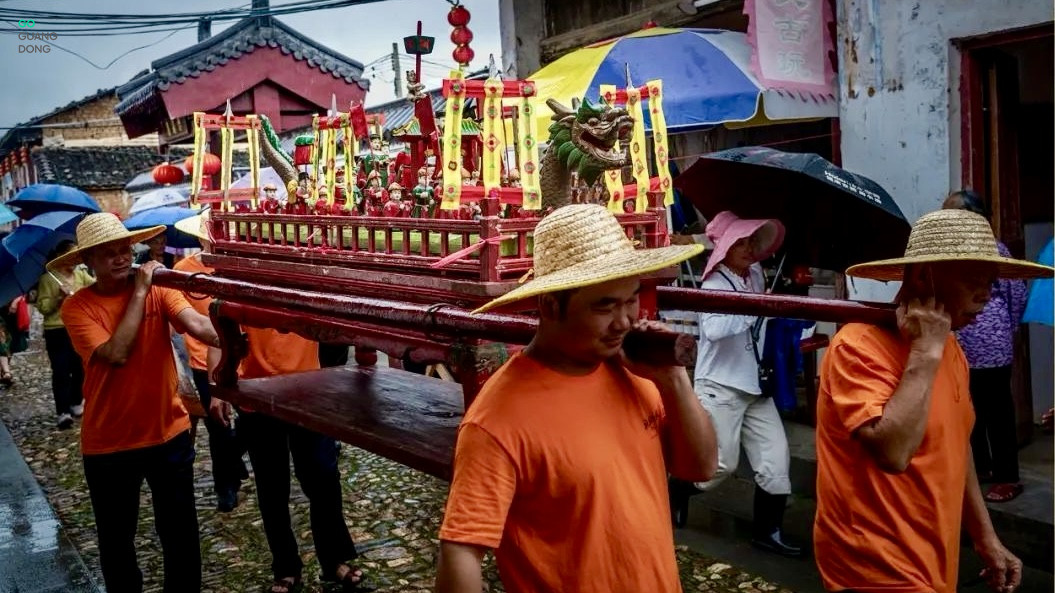
Piaose Parade in Zhuji Ancient Alley
Root-seeking journey portrays vitality of Chinese culture
At the entrance of the Zhuji Ancient Alley stands a solemn "Surname Wall", engraved with 183 surnames that once resided here, each accompanied by the specific Central Plains areas of their origin.
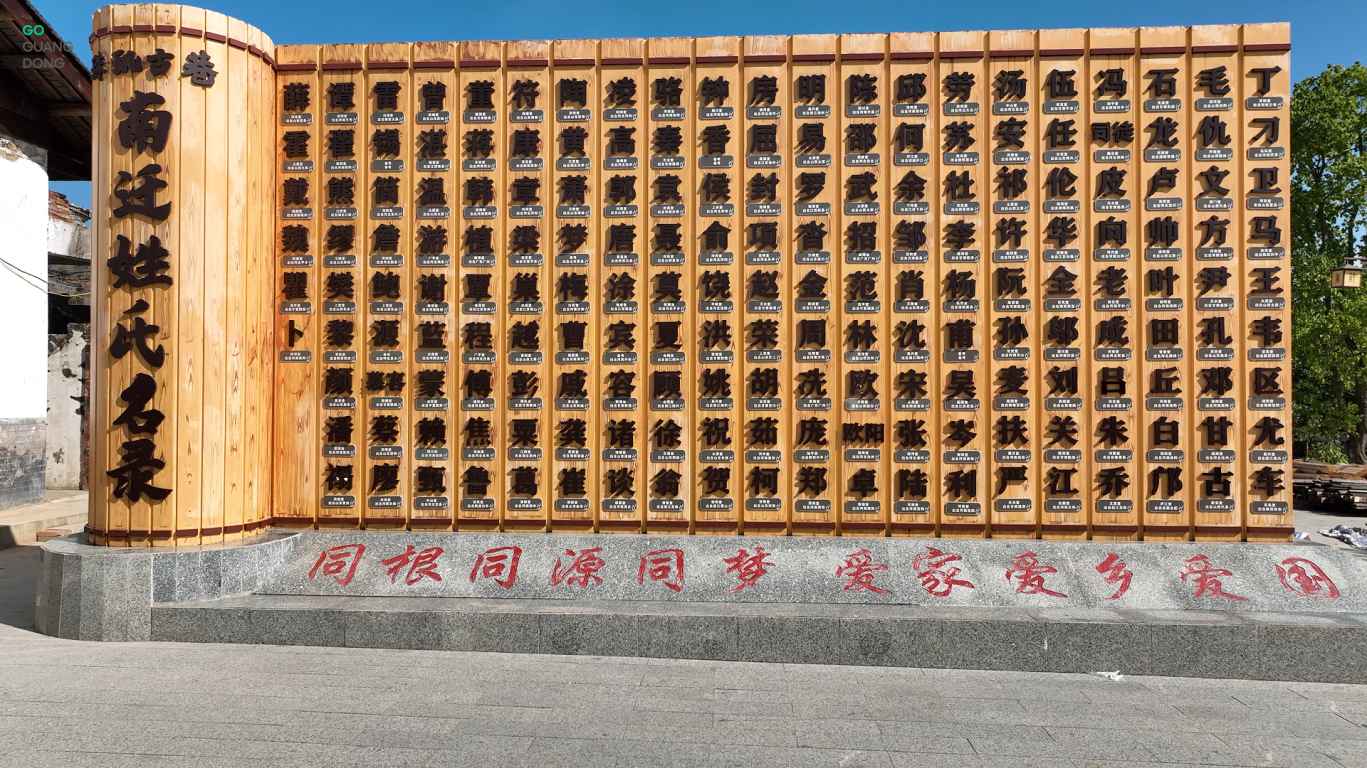
The Surname Wall
"Zhuji Ancient Alley is one of China's three major places for ancestry tracing, hosting annual clan gatherings and kinship conferences that attract Cantonese descendants from around the world," Huang Liyan said. "If you wish to trace your roots, you can come to the Zhuji Ancient Alley."
"During every kinship conference, numerous overseas Chinese return, opening their genealogies, with elders connecting the lineage. Some have even found their names recorded in the genealogies," Huang Liyan has witnessed countless such touching moments.
They travel thousands of miles not only to worship their ancestors and acknowledge their roots but also to seek the bloodline connection with their homeland and nation among the lines of the genealogies. "This sense of root seeking brings a profound shock that is written in the cultural genes of the Chinese people," she remarked with emotion.
Currently, Zhuji Ancient Alley has become an important cultural landmark in Guangdong, annually attracting numerous tourists to seek their roots and conduct study.
"The overseas recognition of the Zhuji Ancient Alley reflects the rising influence of Cantonese culture," Huang Jiaqing proudly stated. The integration of culture and tourism has not only promoted the dissemination of traditional culture but also brought tangible benefits to the local community.
The Zhuji Ancient Alley carries not only the common memory of Cantonese people but also the cultural genes of the Chinese nation, which cherish the past and pass down the distinctive spirit. As Huang Liyan said, "It's not just the spirit of Cantonese people; it's actually the spirit of all Chinese people."
Reporter: Zhou Hongdou, Yin Juewen
Video: Luo Yuan
Poster: Wu Junli
Video proofreader: Lai Yuqing










